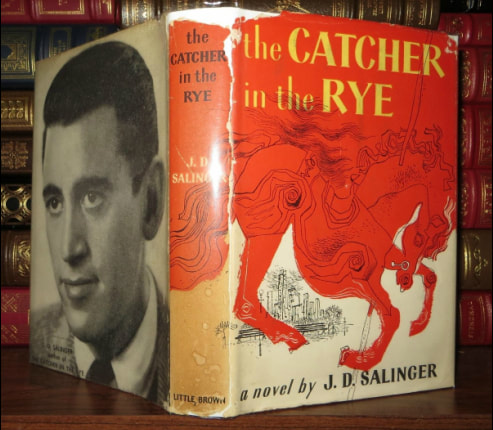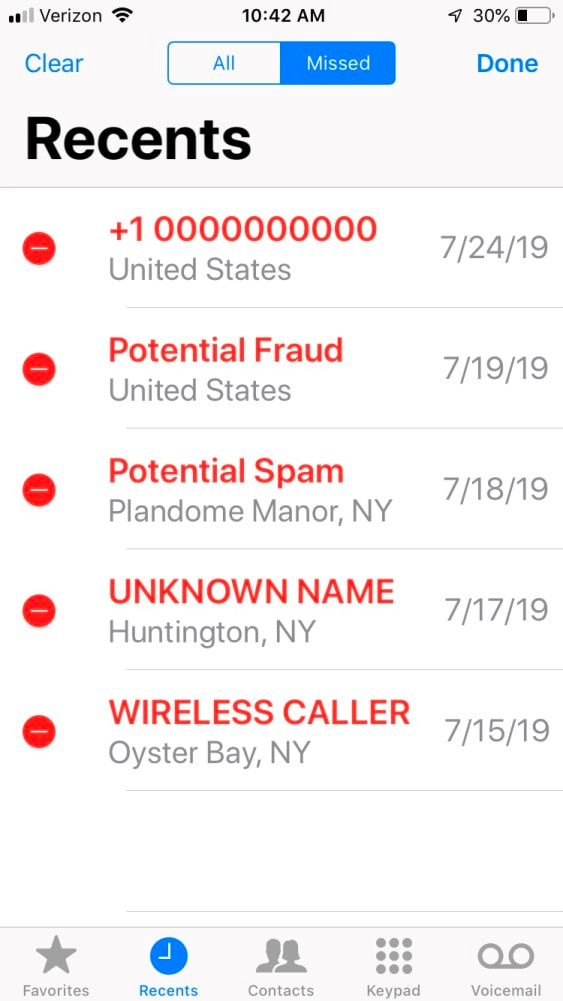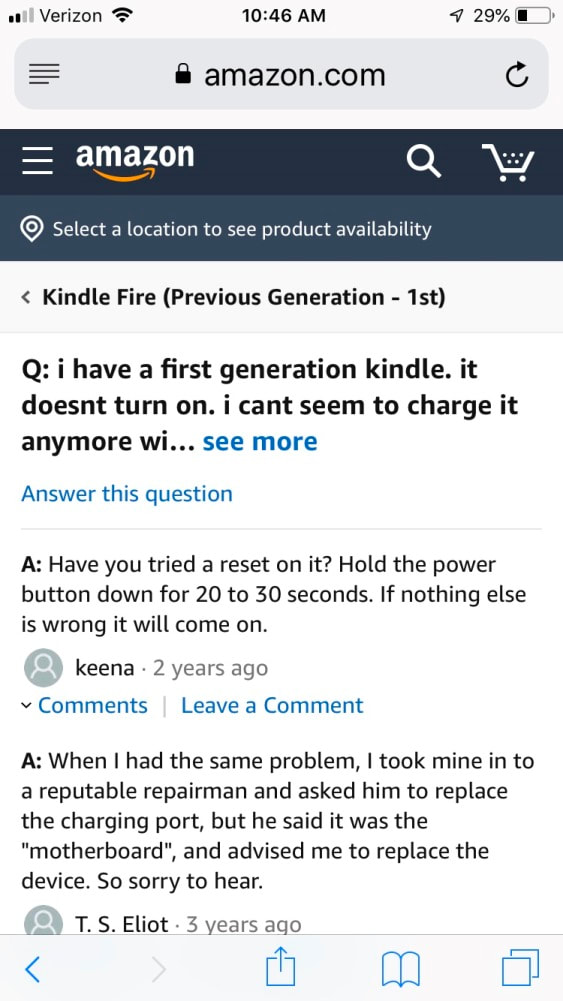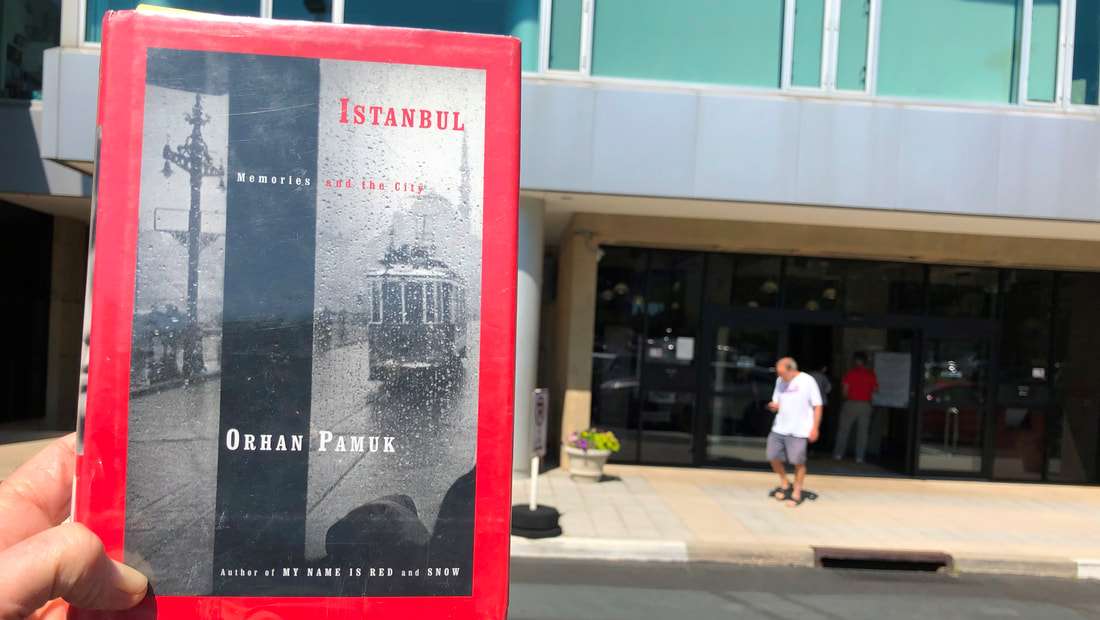|
Things are in the saddle/ And ride mankind. – Ralph Waldo Emerson
Salinger is going digital. I read it in the Times. This makes it possible to read the late and reclusive author on your device of choice, flicking words and sentences and paragraphs that the master put down on paper. Perhaps this is progress, or perhaps not, depending on the reliability (the planned obsolescence, the health of the battery) of your particular device. I say this with the cynicism of somebody who manages smartphones and laptops and TV remotes with perhaps better-than-average skill for somebody in my age group (that is to say, old.) I mean, I assemble this little therapy website. Lately I have spent far more time than I ever could have imagined in the clean, well-lighted Apple place where they administer what I have come to consider electronic methadone. There’s always something. As Salinger goes digital, here are two of my most recent adventures with gadgets: 1. I recently bought an iPhone 8 when my 6-Plus reached obsolescence, just as, I am sure, Apple intended. (It’s not the instruments, they tell you with a straight face, it’s the upgraded programs.) The adjustment has been easier than I expected, and there is one fascinating new feature involving robocalls, the price we pay for having a smartphone. I’ve learned not to answer when I see numbers not already linked in my Contacts. This way I avoid conversations with “Billy” or “Betty” in some call center in India. To my fascination, the new iPhone 8 categorizes unknown callers. Potential Fraud. (Casey Stengel called some of his early Mets “frauds.” Nothing personal. They just couldn’t play.) Potential Spam. (What a wonderful term – reminds an oldster of the vaguely meat product we ate during World War Two.) Unknown Name (Thanks for the warning.) Wireless Caller: (Could be just about anybody.) They all get banished to incoming Limbo. 2. The down side of technology is, of course, that stuff doesn’t work. Back in the dark ages, that is to say, 2012, my wife obtained a Kindle device for storing books. A family member gave her a few books about Turkey for our upcoming trip (that turned out to be epic.) But then we didn’t use the Kindle for years. The other day we found it on a shelf, and opened it, and I read the first few chapters of “Istanbul: Memories and the City,” by Orhan Pamuk, who has become one of my favorite (contemporary) writers. Then I got the bright idea of recharging the device. I used the proper plug but it all went dead. I had no booklet of instructions so I went on line and read about the sudden mortalities of Kindles, how they just stop working. From reading the wisdom of consumer-survivors, I determined that you first try re-booting it, and then give it a sharp smack with your hand, If that low-tech stuff doesn't work, and you possess the skills of a cat burglar, then you buy a little kit, pry the case apart, make your own repairs and replace the battery. Or, you “find someone” who repairs Kindles. Unless, of course, the “motherboard” (whatever that is) goes. Then it’s over. Go buy a new one, sucker. The great maw of Kindles has swallowed our few Turkey books, but my wife came up with a great solution – books, with pages and covers. Our house is full of books, plus, they just may be making a comeback against the novelty of gadgets that depend on batteries and kits and motherboards. Plus, in my town of Port Washington, L.I., we have have the Dolphin Bookshop, right near Manhasset Bay, and a few blocks up the hill we have the Port Washington Public Library (with a reading room overlooking the aforementioned bay.) The library is connected to a consortium that delivers books from libraries all over Long Island. The defunct Kindle? One more gadget to toss at the next electronic cleanup at the town dump. Holden Caulfield would not be surprised.
Mendel
8/13/2019 08:57:32 am
First date with my wife in 1996 at Stan's Book Bin on Merrick Road just east of South Nassau Communities Hospital. Profiled in the NYT by Fred McMorrow.
George Vecsey
8/13/2019 11:03:17 am
Mendel: great values for a first date, and you did well.
Hansen Alexander
8/13/2019 03:48:40 pm
George,
George
8/13/2019 04:27:22 pm
I have old Royal in attic.
George Vecsey
8/13/2019 04:34:27 pm
George: Hansen, I forgot to say, thank you for compliment. I must add, I got pretty good teaching of web and Word at the NYT -- plus, when I retired, my friend Becky said I needed an outlet and she ordered up a site from Weebly, and she mentored me, long-distance, for a few years, maybe more. I know I over-did my panic calls, but finally I stopped pestering her and got a little self-reliant. It's a challenge, to put together a file on the site -- I have become much more visual than I ever was as reporter. I take photos and crop them, making decisions about the look of things. And I learned to diagnose trouble, and how to ask Weebly Help Desk for tips. Nice to learn a new skill in my old age. GV
bruce
8/14/2019 03:46:25 pm
george,
Ed Martin
8/13/2019 05:07:14 pm
GV, your comment about your website, makes me realize that you are now and “Editor and Publisher!” It reminds me of when a friend of mine, an English Professor, became Dean of the College. He said, “I don’t know whether it was a promotion or a demotion, perhaps just a translation.
George Vecsey
8/14/2019 01:30:44 pm
Ed: Never wanted to be an editor or a publisher.Just wanted to write stories and stay out of the chain of command. Same with college: I love visiting friends' classes but the idea of actually teaching a class is terrifying. GV
Ed
8/14/2019 04:24:02 pm
You would be an excellent teacher, and your empathy is an extraordinary strength. I believe you have spoken in college forums, though, haven’t you? I enjoy having a visit with Doc students to discuss special ed. Policy, just once or twice a year. Journalism students at Columbia?
Roy Edelsack
8/13/2019 09:39:35 pm
George, aren’t all the Kindle ebooks stored in the cloud? The Kindle app is free on the iPhone. If you go through the app I should think you can recapture the lost Turkey books.
George Vecsey
8/14/2019 01:27:41 pm
Roy: thanks for the note of sanity. I will try to find out who downloaded the books (including several poetry collections) for my wife. Maybe they are floating around the Web-o-sphere. Will keep you posted GV
bruce
8/14/2019 01:30:25 am
george,
George Vecsey
8/14/2019 01:32:02 pm
Bruce: Don't know the book, but will look it up. I love reading about Japan, since our three (business) trips there. Fascinating history. GV
Altenir Silva
8/14/2019 06:47:51 pm
Dear George: 8/22/2019 06:22:36 pm
George-It is OK to be modest, but do not sell yourself short. Comments are closed.
|
Categories
All
|













